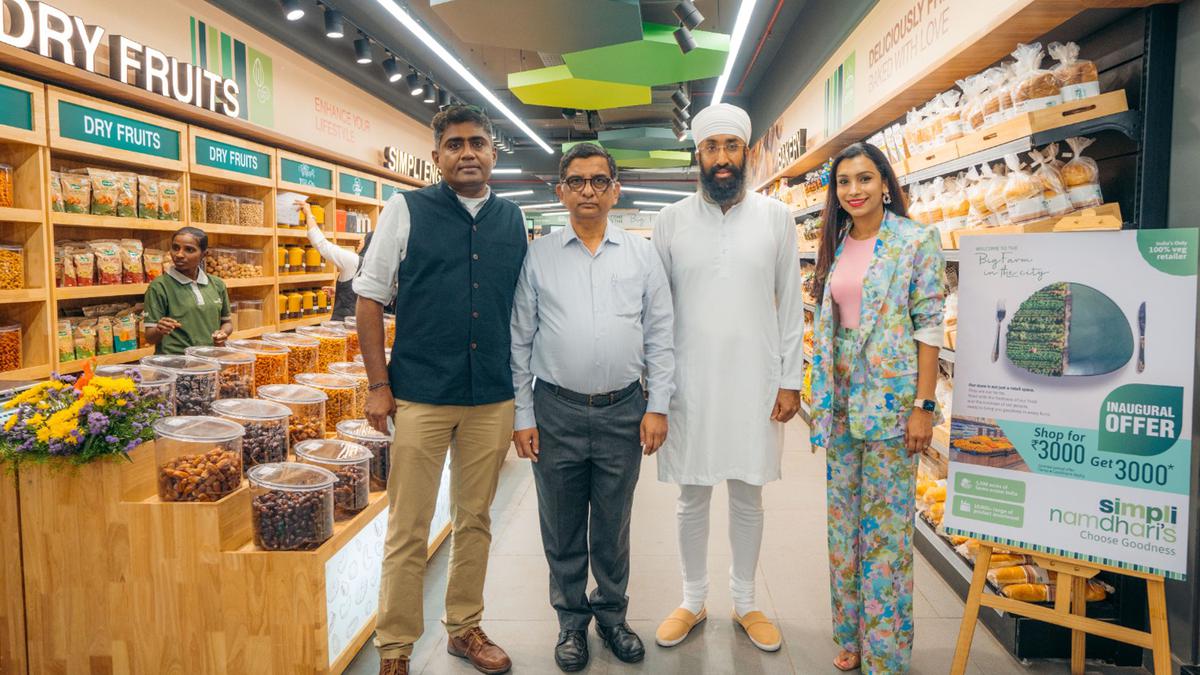When Satguru Jagjit Singh, former chief of Namdharis (a Sikh sect), thought of starting an agribusiness and bought a 50-acre land to grow vegetables and fruits in Bidadi in the 1970s, he never imagined that his venture would one day become a household name in Bengaluru, spread across the country and also take to export. In 1982, he asked his nephew Satguru Uday Singh to take the reins of the operations, and under his guidance, the group formally began its professional journey. Namdhari’s Group, which has a presence across fresh fruits and vegetables, groceries, dairy, seeds, fine dining and cafes, has a cumulative turnover of ₹ 650 crore. The chain currently has 11 Simpli Namdhari’s stores and 16 Namdhari’s Fresh stores. Gurmukh Roopra, CEO, Namdhari’s Group, argues that with more and more people from rural areas moving to urban centers for jobs, there is a trend where the number of people engaging in agriculture is gradually decreasing. This opens up an opportunity for the consolidation of landholdings. If landholdings become bigger and agricultural activity is scaled up, incomes of Indian farmers can improve, be said, in an exclusive interview with The Hindu. Namdhari’s Group is looking at a fresh phase of expansion, in Bengaluru and in other metros. All their businesses, mostly seed business and fresh retailing, require new investments. They will be looking for a financial or strategic partner to help them take their story forward. The company is planning to raise up to $50 million to scale up their retail network in Bengaluru and across the country in the next 10 months. Namdhari’s Group will consider multiple options including strategic or financial partnerships to expand their retail and seed businesses. They are also open to organic investment with someone who believes in the philosophy of Namdhari’s and wants to make it a national brand. Gurmukh Roopra believes that the future of India’s agriculture lies in both short-term and long-term approaches. In the short term, the government needs to invest more in farming, improve post-harvest and agricultural marketing, establish more cold chains, and connect mandis to improve market access. Additionally, the country should generate more white-collar jobs in non-agriculture sectors to reduce the dependency on farming and allow for consolidation of landholdings. This will enable multiple cropping, precision agriculture, mechanization, and adoption of technology, thereby reducing production costs and improving farmers’ incomes in the long run. To improve farmers’ incomes, Namdhari’s Group emphasizes the need for tangible investments in farming and enhancing crop management and post-harvest practices. By upgrading the whole ecosystem and focusing on export-oriented policies, Indian farmers can tap into the international market and earn better prices. Namdhari’s Group suggests making investments in farm infrastructure, market creation, research for developing better Indian varieties, and improving the supply chain from farms to consumers’ homes. The company believes that such practices can increase farmers’ incomes by 20-30%. Namdhari’s Group has a strong presence in the seed business, which accounts for a significant portion of its revenue. The company conducts research and trains farmers in India, Southeast Asia, and the Middle East, with specific focus on each region’s climatic conditions. They distribute their seeds through thousands of distributor points across the country. Namdhari’s Seeds, their seed division, has a turnover of ₹ 300 crore and focuses on research and production of vegetable crops. The company highlights that seed-producing farmers enjoy a better status and income compared to fresh produce farmers. They have a robust research and development team comprising research breeders, scientists, and multiple research stations spread across the country. Namdhari’s Group works with thousands of farmers and distributors, emphasizing the importance of collaborative efforts between the private sector and the government to transform agriculture and uplift farmers in India.











